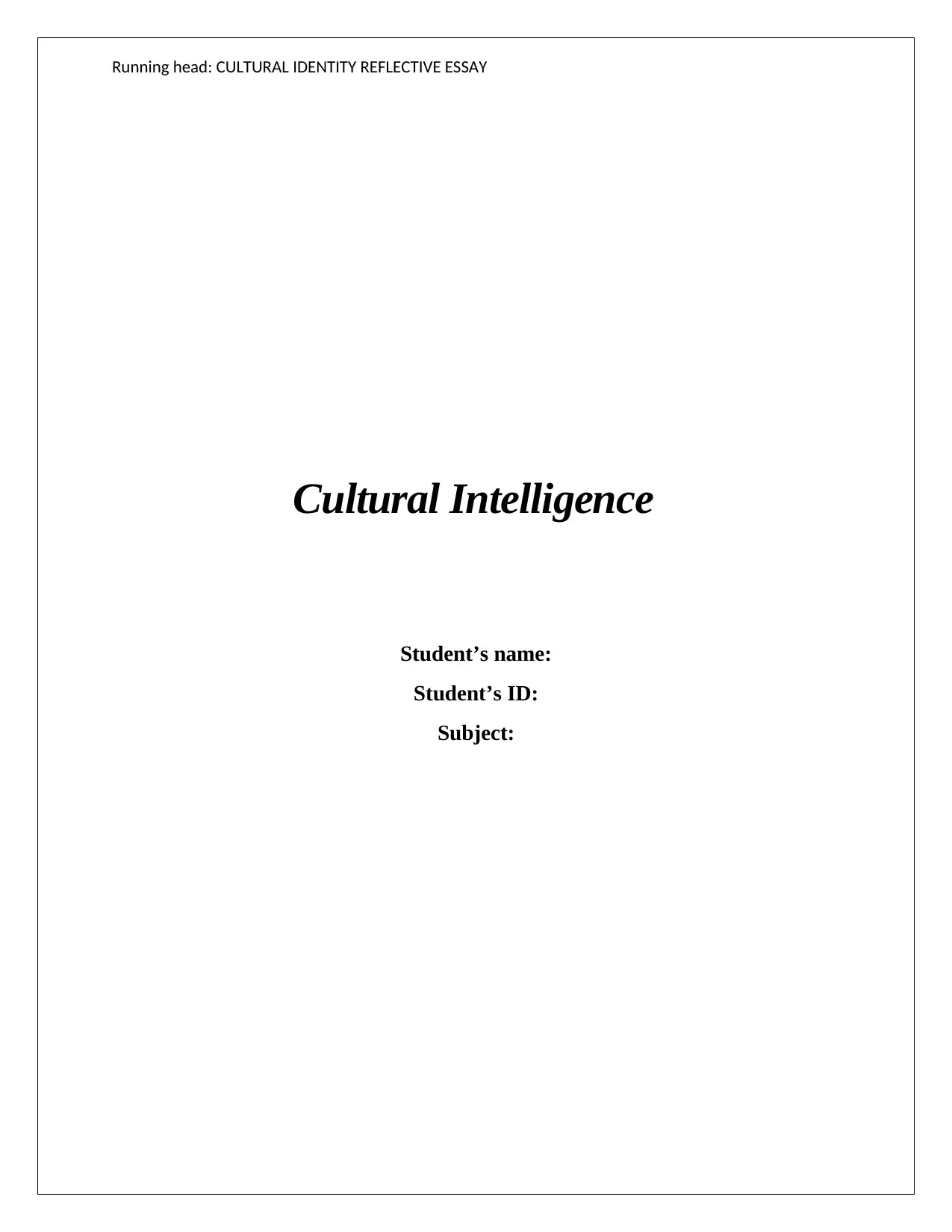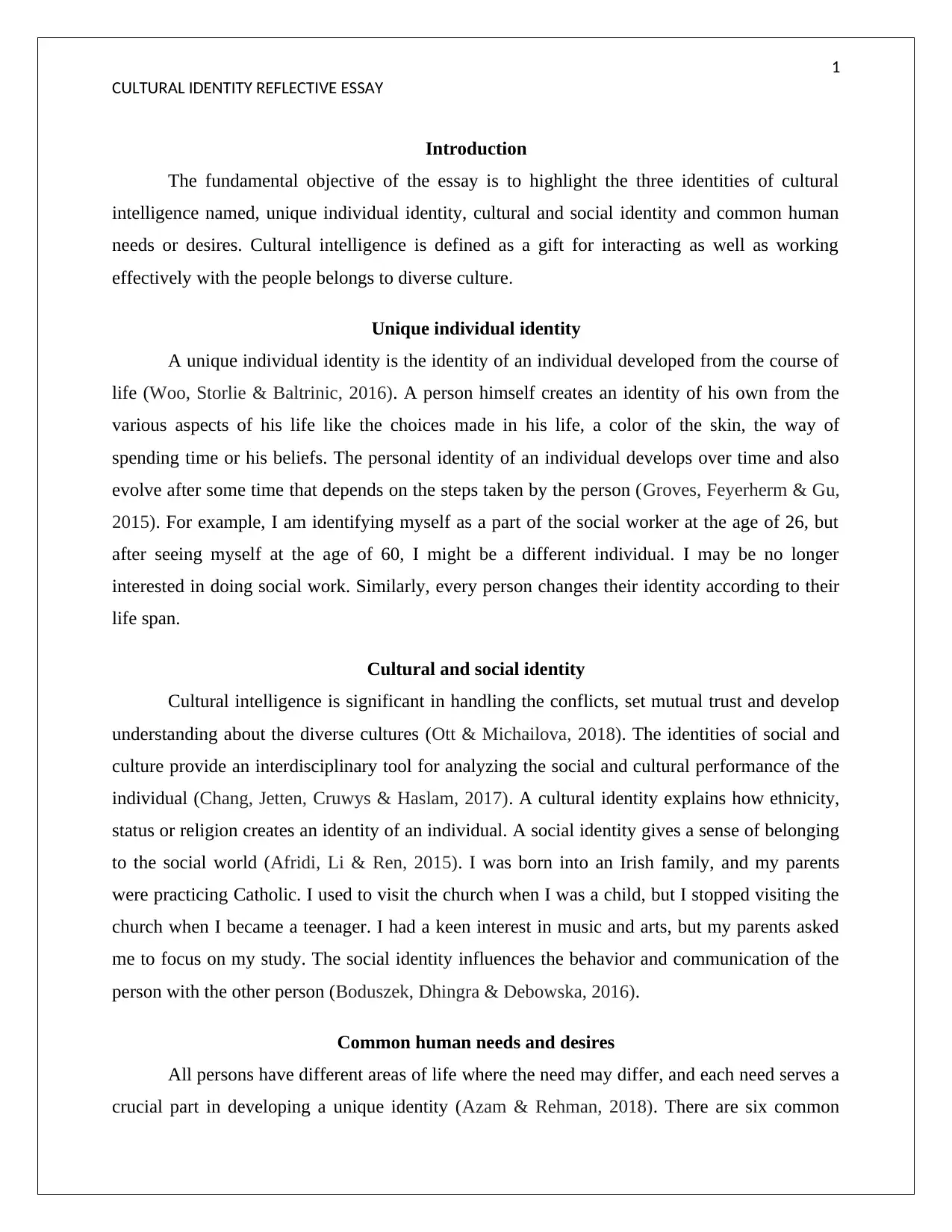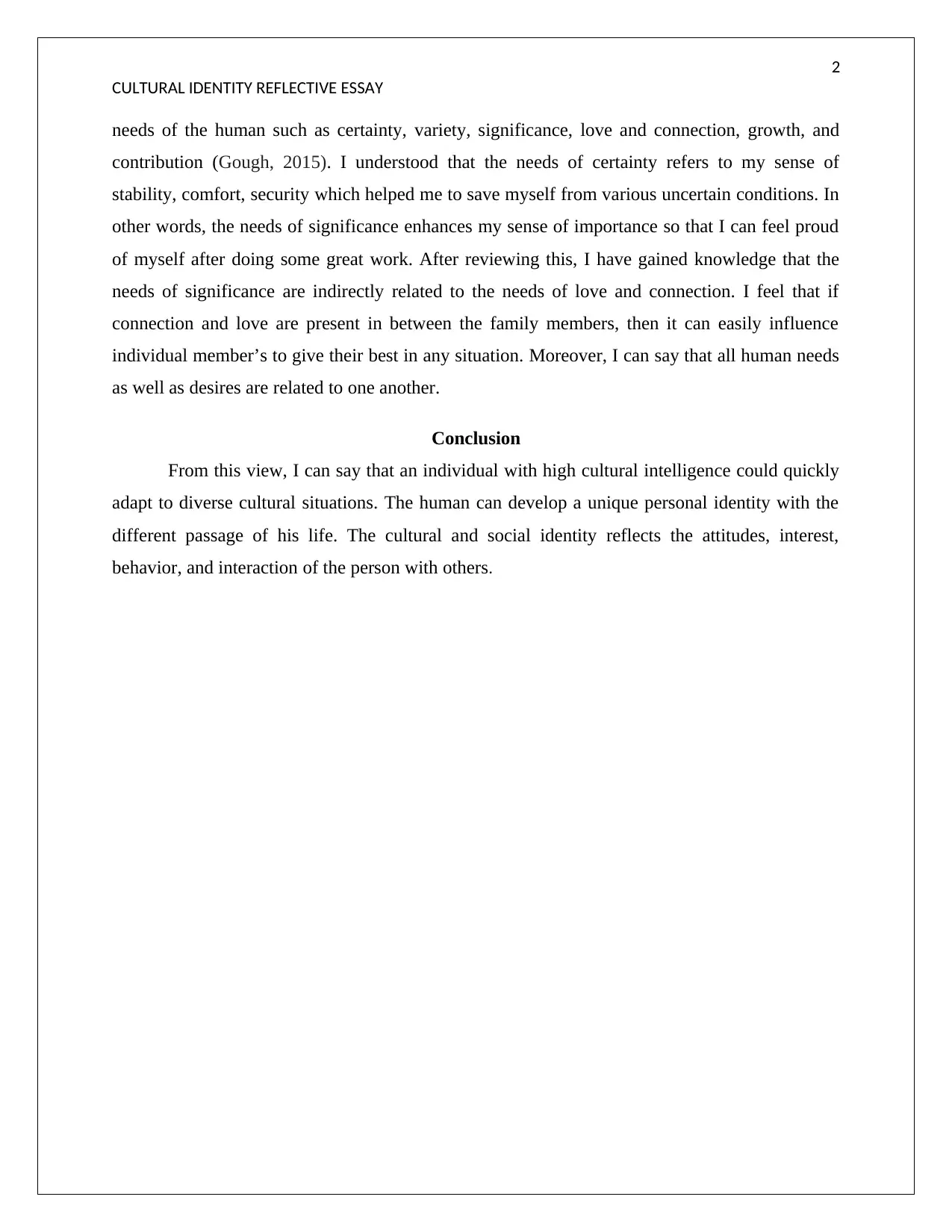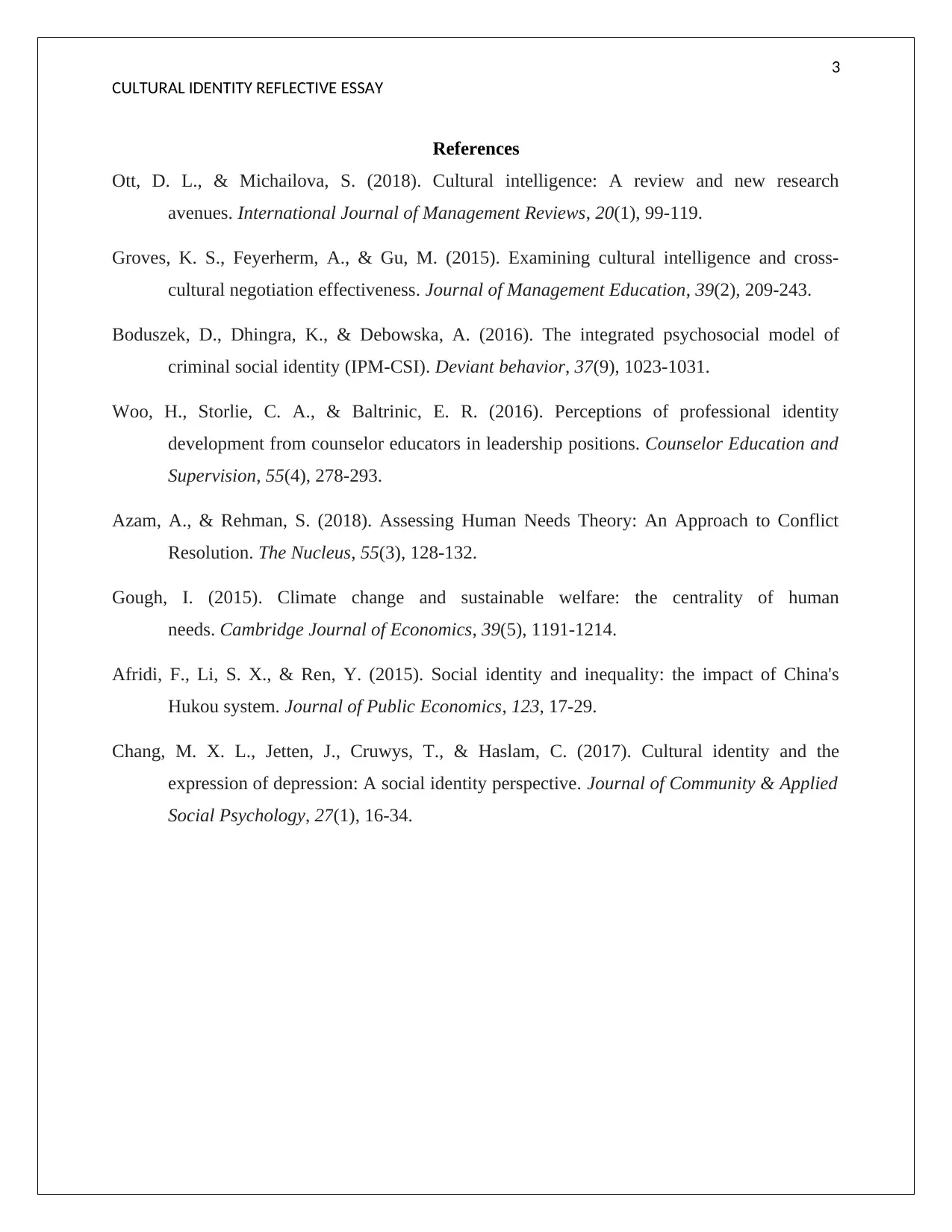Reflective Essay: Understanding Cultural Identity & Intelligence
VerifiedAdded on 2023/04/12
|4
|792
|228
Essay
AI Summary
This essay reflects on cultural identity through the lens of cultural intelligence, examining three key aspects: unique individual identity, cultural and social identity, and common human needs and desires. The author explores how personal choices, cultural background, and social interactions shape individual identity, emphasizing the dynamic nature of identity development over time. The essay highlights the importance of cultural intelligence in navigating diverse cultural situations, fostering understanding, and resolving conflicts. It also delves into the six common human needs—certainty, variety, significance, love/connection, growth, and contribution—and their interconnectedness in shaping a well-rounded identity. The author concludes that individuals with high cultural intelligence can effectively adapt to diverse environments, develop strong personal identities, and build meaningful relationships across cultures. Desklib offers this essay as a valuable resource for students studying cultural identity and intelligence, alongside a wealth of other solved assignments and past papers.
1 out of 4











![[object Object]](/_next/static/media/star-bottom.7253800d.svg)